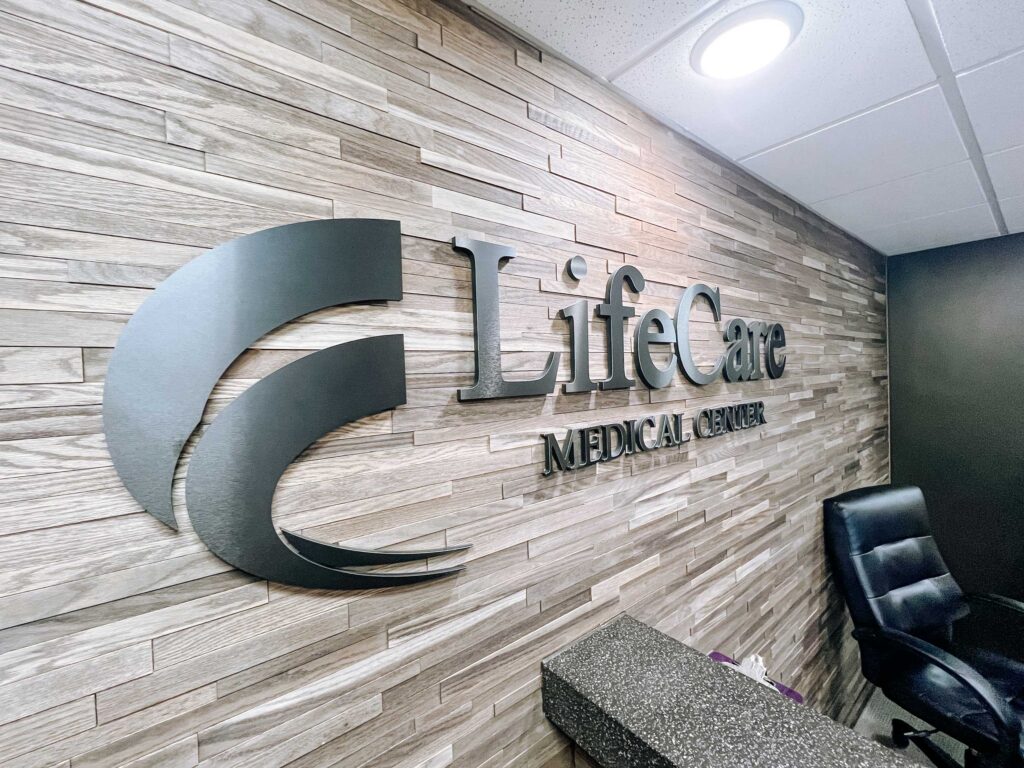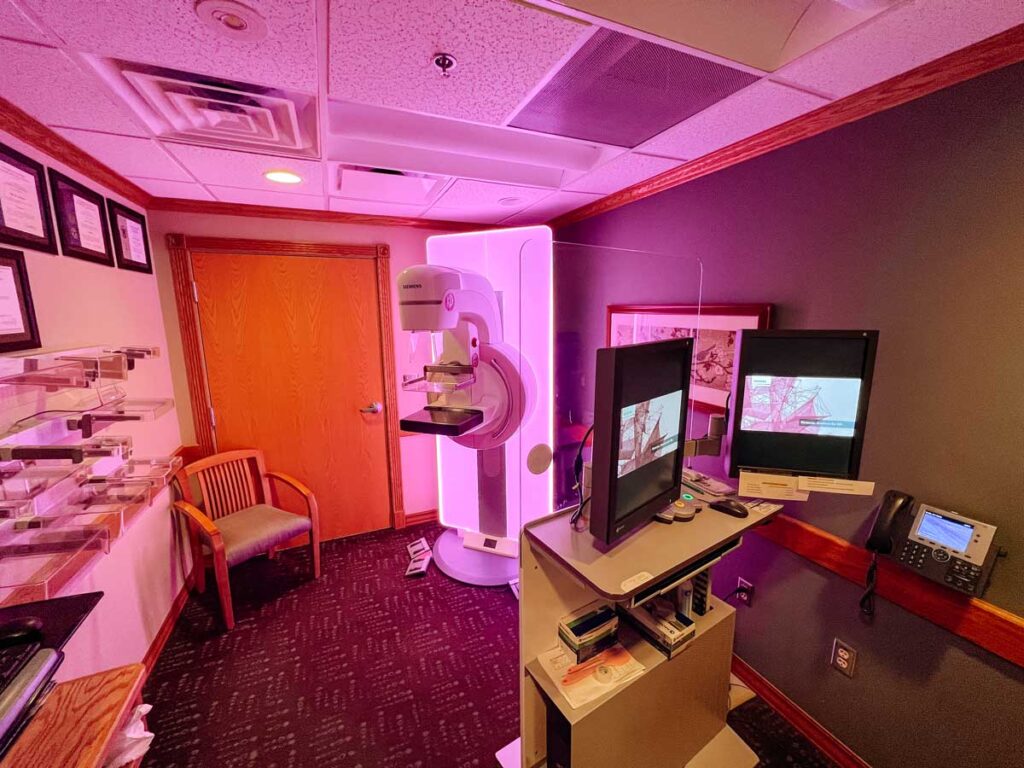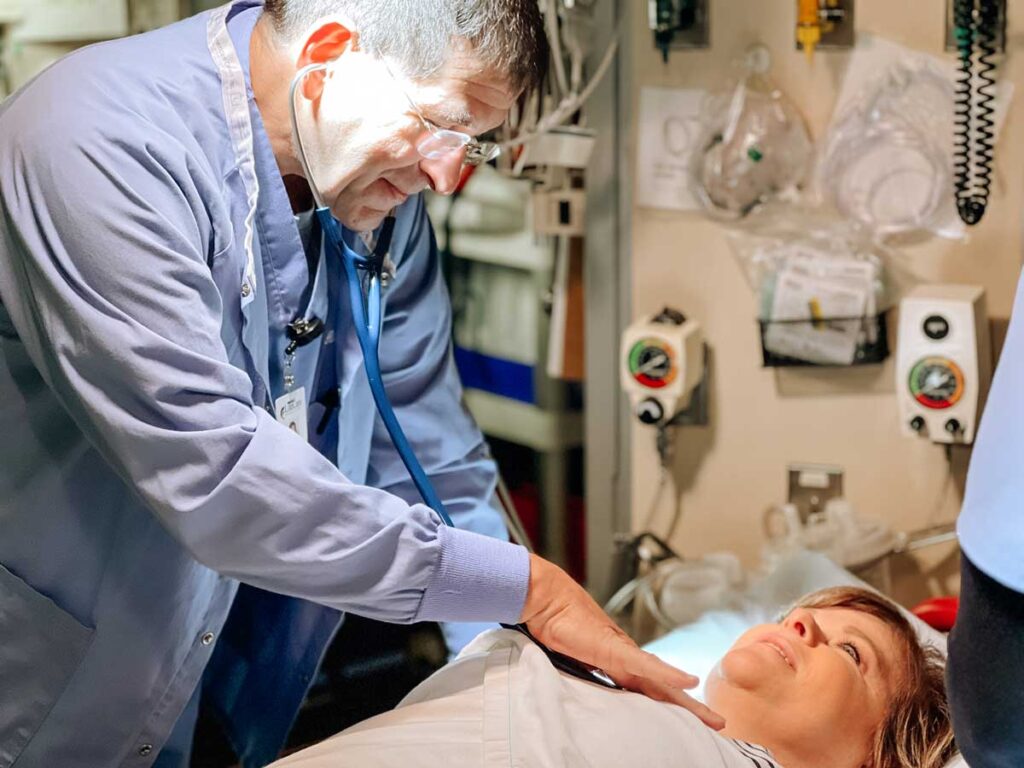A new era for LifeCare’s MRI

A new era for LifeCare’s MRI
When LifeCare s board of directors voted to invest in a permanent, in-house MRI machine, they weren’t just agreeing on the lease to a million dollar piece of equipment. They promised a $4 million expansion to house it.
That was over two years ago, and now with nearly every detail in place, the more than 11,000 sq. ft. addition to the hospital s north side is home to LifeCare s brand new MRI machine, a Siemens Magnetom Aera 1.5 Tesla.
This is a momentous occasion for LifeCare Medical Center. This MRI equipment puts LifeCare s Imaging Department into a whole new generation of technology, says Keith Okeson, LifeCare President/CEO.
The state-of-the-art Magnetic Resonance Imaging device allows LifeCare personnel to capture pristine images of the human body.
MAKING ROOM
The construction effort that cleared the way for LifeCare s new MRI also provided additional space for the Telemedicine and Infusion Therapy departments. This, however, was not a typical run of the mill construction project.
This was a very unique endeavor, says Brian Grafstrom, LifeCare s Director of Facility Management. To guarantee clean, crisp MRI images, we needed to stop all outside radio waves from entering the room.
To do this, crews used a protective copper sheeting to essentially wrap the entire room in metal.
We had to consider all forms of motion within the building. That includes the elevator located on the other side of the building, says Shar Peterson, LifeCare s Director of Imaging. Otherwise the slightest motion could cause artifacts to appear on the images.
LifeCare produced its first in-house MRI using the new equipment in August and now offers the service five days a week.
This is a big step from the occasional service we had through the mobile unit, she says, referring to the portable MRI machine from Diagnostic Medical Systems.
That arrangement began in 1992, which in its day was an achievement unto itself because it offered patients local access to MRI technology.
Over the years, a growing demand increased the traveling MRI s visits from one to two days a week.
LifeCare remains grateful to DMS and its staff for their years of outstanding service to the community.
They will be missed, however we are happy to now have MRI scans available to our patients five days a week, says Peterson. This is a huge investment for the hospital, but the benefit of having a state-of-the-art piece of equipment, like the new MRI, available to our community members nearly every day, is so worth it.
HOW IT WORKS
Once only a dream, the MRI is now an essential tool in modern medicine, Peterson says.
Because of how precise the images are, this technology allows doctors to look at tissues inside the body without making a single cut.
The average MRI scan takes 30 minutes, while a complete exam lasts up to 60 minutes, during which time several dozen images may be obtained.
These images assist physicians in making the best diagnosis possible and may even eliminate the need for biopsy or surgery, says Peterson.
The advanced technology of the Siemens MRI uses a computer, a large magnet, and radio waves to produce a two or three-dimensional image of the body, Peterson explains.
If all safety precautions are in place, the magnetic field used is not harmful, she says. For that reason, all patients first must be screened for implants and other types of metal fragments that may be in their bodies.
WHAT IT SEES
A person may need an MRI for a variety of reasons.
Stroke, shoulder pain, and spinal injuries are just a few. An MRI can also be used to detect many kinds of conditions, especially involving soft tissue and joints.
Because an MRI scans at the cellular level, it is possible to differentiate between healthy and diseased cells.
This is especially important in cancer cases and cases involving stroke where it is possible to illustrate cell interaction with the brain, she says.
MRI technology also has proven to be of great clinical value in the assessment of central nervous system disorders, musculoskeletal diseases, hepatic lesions, heart and great vessel disorders, pelvic masses, and masses in the adrenals and kidneys, Peterson says.
It is also the modality of choice for brain and spinal cord imaging.
COMFORT IS KEY
To produce crisp images, a patient must be perfectly still. To be still, a patient must be comfortable. To make a patient comfortable can be a challenge, especially for those who become uneasy in confined spaces.
With that in mind, LifeCare selected an MRI device with a larger than average opening at its center.
This MRI unit has a 70 cm bore, which is about a 30 inch circular opening, says Peterson. This helps claustrophobic patients feel more at ease during the scanning process.
A stereo sound system is also integrated into the machine, which allows patients to listen to their favorite music during the exam.
Other comfort features include adjustable settings for ventilation, lighting, and airflow.
Additionally, the table can be lowered to less than 17 inches from the floor and allow for greater access by the young and elderly.
Well trained staff
Among those trained to operate the new MRI are two longtime members of LifeCare s Imaging team.
Mary Anderson, RT (RMCT) and Brooke Johnson, RT (RMCT) spent two years preparing for the new MRI s arrival.
These women spent a week in North Carolina at the manufacturer s training center in addition to attending several sessions with an onsite application specialist from the company.
In addition, LifeCare s locally contracted radiologist Daniel Courneya, M.D., has researched and conducted MRI scans for more than 25 years.
He will be instrumental in providing guidance to our Imaging staff and physicians, Peterson says.
SAFETY TRAINING
Because safety and accident prevention are of utmost importance, twolevels of safety training have been implemented at LifeCare.
All staff members from Imaging, Housekeeping, Facilities Management, and Information Systems as well as staff from the Roseau Fire Department have received Level I training in MRI.
Level II Safety Training is reserved for immediate MRI Staff only. In addition, law enforcement officials have been given an onsite tour to ensure they know their boundaries within the MRI suite.
This magnet has a tremendous amount of force much like a junk yard magnet that is strong enough to pick up vehicles, says Peterson. It s a powerful piece of equipment and we at LifeCare are excited and extremely proud for the opportunity to introduce it to our community.
To learn more about Imaging Services at LifeCare, call (218) 463-2500.






